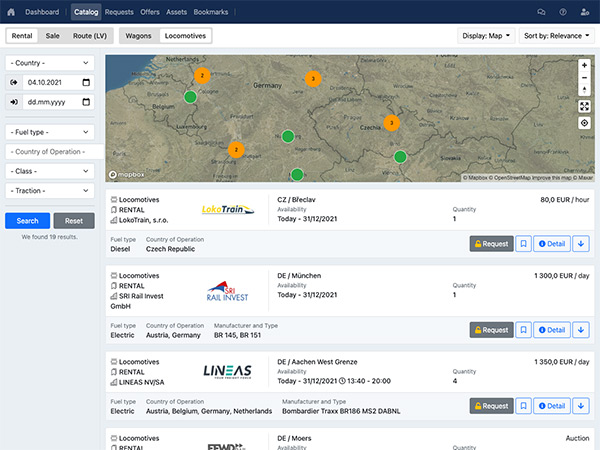Group revenues (adjusted) grew by 19.1% year-on-year to around €56.3 billion in 2022 - a new record. In 2020 and 2021, DB had still incurred losses in the billions due to the pandemic.
In addition to the strong demand in passenger transport, the main driver of the Group's positive development was once again the very successful logistics subsidiary DB Schenker. In terms of operating profit, it surpassed the peak value of 2021 by almost 50 per cent, generating the highest operating profit in its corporate history at around 1.8 billion euros and thus bringing the Group back into the profit zone.
In DB's core business, revenue and earnings in 2022 will also be significantly higher than in the previous year. "Climate-friendly mobility is booming. Demand is there and is currently growing strongly. In 2023, we could see a new record in long-distance transport with well over 150 million travellers. This spurs us on to do more for our customers as quickly as possible - because Germany deserves a railway that is more efficient and more punctual," said Dr Richard Lutz, CEO of Deutsche Bahn, in Berlin. The key to this is greater capacity, especially in the densely used rail network. That is why DB, together with its owner and the industry, is working flat out on a fundamental renewal of the infrastructure.
Around two billion passengers used DB's trains in 2022 - a good 40 per cent more than in the previous year. DB's long-distance services even recorded around 61 per cent more passengers. Last year, the company increased its revenue by more than two billion euros to around 4.8 billion euros compared to 2021. DB Regio achieved an increase in turnover of around one billion euros. Passenger transport on the railways also rose sharply in 2022 compared with the previous year: by around 63 per cent to around 82.6 billion passenger-kilometres. The 9-euro ticket, which was sold 52 million times across the industry last summer, had a positive impact.
DB Cargo increased its revenue, but is still in the red. The rail freight subsidiary suffered in particular from the tense operating situation and additional costs. The rail business as a whole significantly improved its revenue and result, but remained in the red at minus 600 million euros.
Operating performance on DB's heavily used rail infrastructure rose by a further 2.2 per cent year-on-year to around 1.13 billion train-path kilometres. This means that the network is under greater strain than it was before the pandemic. It is too old, too prone to failure and has too little capacity. With record levels of modernisation and construction work taking place across Germany, DB trains will be less punctual in 2022 than ever before: only 65.2 per cent of long-distance trains will arrive on time (2021: 75.2 per cent). Deutsche Bahn CEO Lutz said: "Last year marked a turning point. It has become clear to everyone involved: We have to set a new course and approach the renovation and modernisation of the infrastructure in a completely different way."
In the financial year 2023, very high energy costs and significantly increased purchase prices will weigh heavily on DB. The company therefore expects an operating loss of around one billion euros, partly due to high inflation and billions of euros of upfront expenditure for additional infrastructure improvements. Group revenue (adjusted) is expected to exceed 56 billion euros in 2023. Gross capital expenditure is expected to increase to more than 18 billion euros and net capital expenditure to more than 8.5 billion euros. Net financial debt is expected to increase to more than 33 billion euros. All forecasts are subject to a high degree of uncertainty due to volatile market developments.

